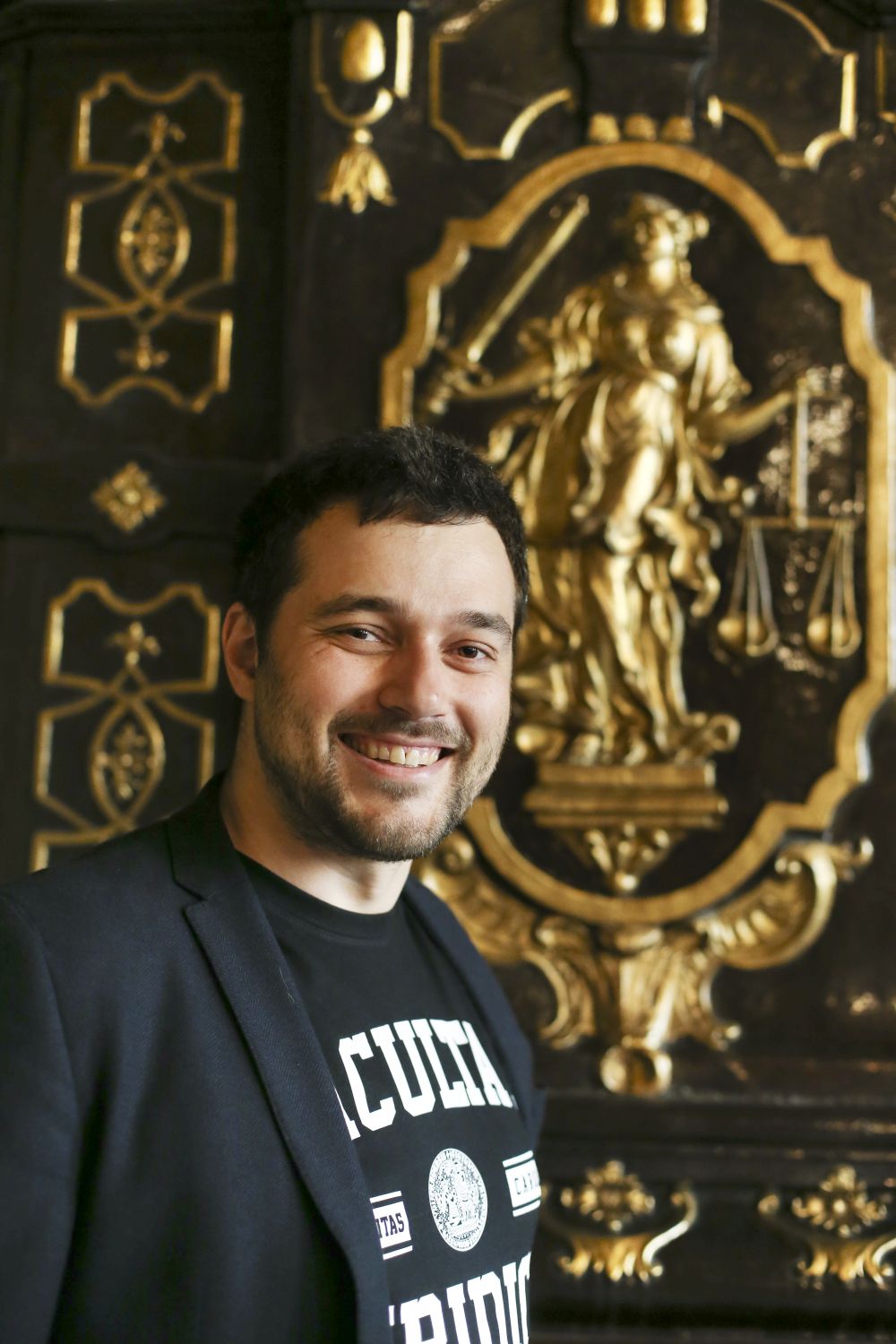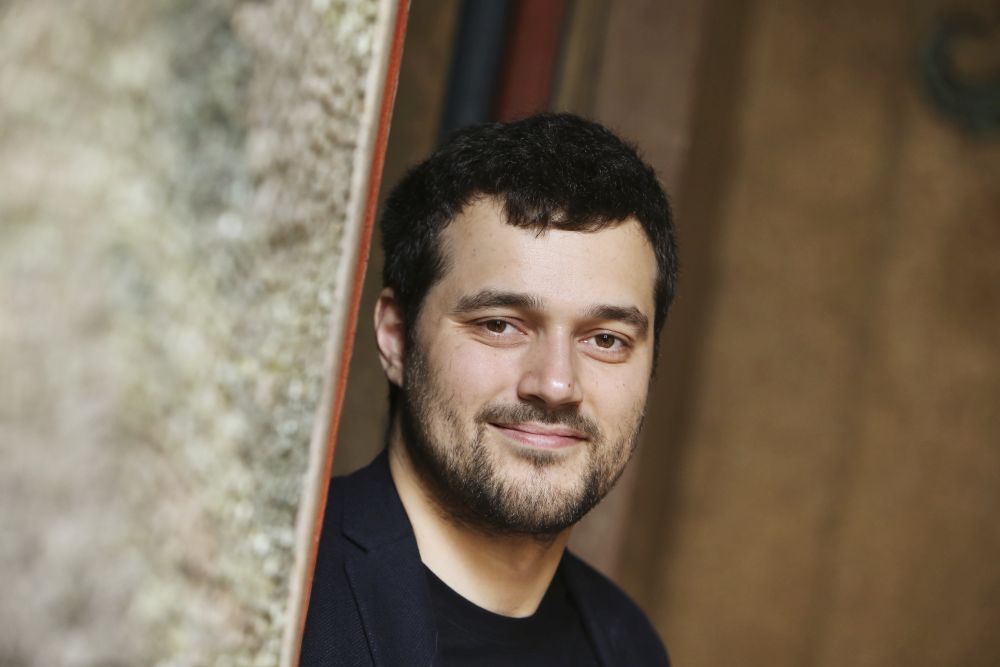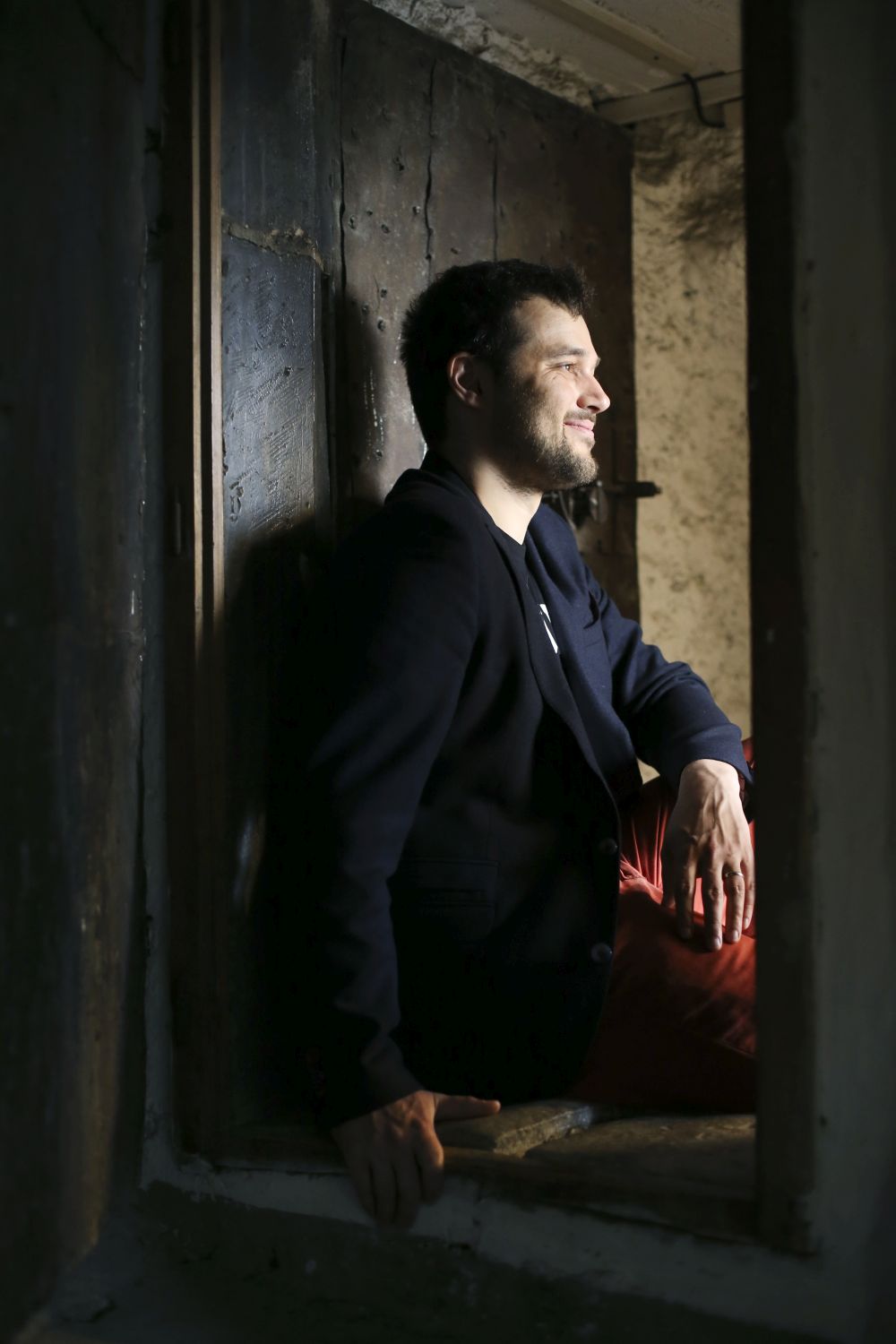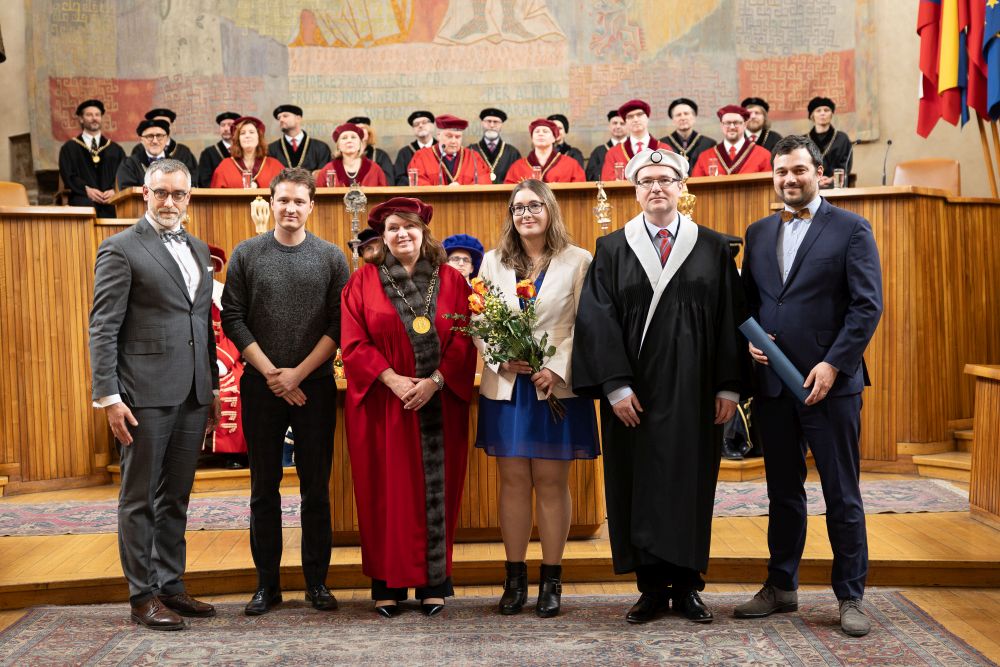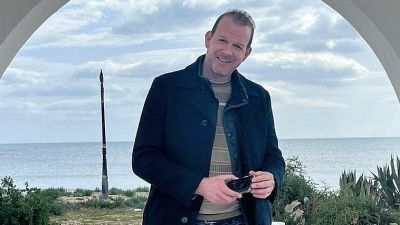For the second time in the past year, a project developed by researchers at Charles University’s Faculty of Law has received grant support from the European Research Council. The ERC Starting Grant, worth €1.5 million, goes to Jakub Drápal, who focuses on the issue of criminal sentencing across continental Europe.
When we last spoke three years ago, you were preparing to go to Leiden for a two-year postdoctoral fellowship. How did you spend your time in the Netherlands?
Leiden is the best university on the continent studying sentencing, so I was keen to collaborate with the researchers there. And what did those two years give me? First of all, time. I stepped out of my routine of teaching, supervising theses, and organising various events. This gave me the opportunity to think about things rather undisturbed, which is necessary for science.
We launched several projects there. For example, we looked at the effectiveness of suspended prison sentences. We were interested in whether this punishment deters offenders from committing further crimes. It turned out, not very much. It was the first study ever to examine this causally.
We also considered other issues. The architectural layout of the department supported this. There was one common room where we would all naturally meet. Great ideas were born during these less formal meetings over coffee or tea. This led, for example, to our decision to conduct an experiment with Dutch and Czech judges and prosecutors. We are now processing the results and expect to get them published in some of the top journals. We are looking at the impact of sentencing disparities on future sentencing decisions. We were interested in whether, when a person encounters a strict judge, (s)he receives a harsh sentence only at that moment, or whether harsh punishment will also be reflected in the future if the offender commits a crime again. We found that it is reflected very strongly. But no one has ever thought about this or tested it experimentally before.
What did you bring back home from Leiden?
Above all, I brought back contacts and ideas. My doctoral student will now be collaborating with people from Leiden, and some of my colleagues from Leiden also sat on the institutional board when I was applying for the ERC grant. So I was not a complete stranger to them.
I also realised in Leiden how crucial it is for an institution’s administration to function well. A perfectly functioning secretary’s office saves us researchers a huge amount of time. I also attended excellent training there on how to write grants and how to provide feedback. I benefit from all of this today.
I also brought a new bike back from Leiden, but the most beautiful thing we brought back from the Netherlands is our daughter, who was born two months after our return (laughs).
Congratulations are in order. Did you also bring back an idea for an ERC project?
No. I had already thought about it before, but in the Netherlands I developed it further. In 2017, I first met Professor Zdeněk Strakoš, who went through my CV with me and advised me on what to focus on and where to aim if I wanted to succeed (Jakub Drápal later attended national workshops organised by the Expert group for supporting ERC applicants, coordinated by Prof. Zdeněk Strakoš – ed.). One of his recommendations was to obtain international experience.
And the others?
He then told me that top-quality publications showing that I am the one developing the field are highly valued. It was a series of things that I had been subconsciously thinking about since then, and I tried to gradually orient myself in that direction in order to gather everything required to increase my chances of obtaining a grant.
I also started writing down various ideas. After a training at the Rector’s Office a few years ago, I knew that I had to come up with a topic that met the criteria of high-risk, high-gain, meaning that I had to come up with something that would truly transform the field.
I'm not very good at switching off; my mind is always racing. So, for example, I was out cross-country skiing and suddenly something occurred to me, so I had to stop and write it down – sometimes I would stop almost every few hundred metres. That’s how I accumulated a lot of ideas, and then one day I sat down, ran through them, crossed some out, and slowly the main idea began to take shape.
Which one was it that impressed the European Research Council’s evaluation panel?
The main idea is “back to basics.” My project has three dimensions. The first focuses on what sentencing looks like in continental Europe at the legislative level, i.e., what judges in individual countries are following. Although we have theoretical works discussing, for example, how we should punish offenders when they commit multiple crimes and then we try them for all of them at once, when you start looking at the individual criminal codes of different countries, you find that each country has a different approach. However, we do not have any descriptions of the individual approaches, and we do not know what their advantages and disadvantages are.
Another area I want to focus on is sentencing ranges. No one has ever compiled data on sentencing ranges across Europe, albeit they are the key element structuring judicial discretion at sentencing. I was surprised some time ago to find that some countries do not have a minimum sentence. There is a huge difference between having a basic sentence of 0 to 20 years and 15 to 20 years, yet it is not discussed. The question is what the advantages and disadvantages are, and how and what works in each country. Using data on ranges and on other rules will enable us to deduce which countries provide judges with greater discretion.
Mapping and quantifying legal regulations is the first part of returning to basics. The second dimension – empirical – is based on the fact that we have relatively few quantitative studies that work with large amounts of high-quality data.
When analysing sentencing, we use data to determine, for example, how differently individual courts across a country are imposing sentences, whether we treat members of ethnic minorities differently, and so on. However, determining this is problematic because there are many variables on the part of both the perpetrator and the crime committed. It is possible that completely different thefts are tried in Svitavy (a local Czech town – ed.) than in Brno (the second largest Czech city – ed.), and perhaps this is what can explain some of the differences detected by models using lower-quality (less detailed) data. The problem is that the administrative data collected by the state and used by researchers is relatively rough and often lacks sufficient detail. So, I came up with the idea of taking descriptions of crimes from digitised court rulings and extracting information from them that isn’t included in administrative datasets. If we have a detailed description of what the offender has done and combine it with detailed data on the offender's criminal history, we will suddenly be able to go much deeper and talk with greater reliability about the differences in the various influences on sentencing.
Impressing ERC was greatly enabled by the great support from Štěpánka Gray Marková from the Projects and Grants Office at CU’s Faculty of Arts. One of the pieces of advice I picked up from her and at various workshops was that when applying for a grant, you need to show “why here, why now, and why me”. And for me, everything now fell into place. We now have digitised judgments at our disposal, and developments in the field of natural language processing have advanced so far that we can now actually carry out the research I have been thinking about for a long time.
And what is the third dimension?
That explains “why me”. My advantage is that judges and state prosecutors are willing to cooperate with us on experiments, which is unique. Both the Czech Union of Judges and the Union of Public Prosecutors have committed to recommending their members to participate in testing how sentencing guidelines could improve sentencing, which is a topic that is being addressed across the world. Various types of methodologies work in Finland, the Netherlands, Moldova, the United Kingdom or various states of the USA, but no one has ever tested them experimentally. And we can do that because we have been working with judges and prosecutors for a long time. They thus believe us that we really want the system to work well and are therefore willing to help.
Another advantage we have is that we also focus on Central and Eastern Europe. International criminal scholarship is mostly oriented towards the United Kingdom, the USA or Australia, and if it does focus on continental Europe, then it’s Scandinavia or Germany.
It is quite striking that when The Routledge Handbook of European Criminology was published, which included a chapter on sentencing in Europe, Central and Eastern European countries were mentioned in only 4% of cases, even though post-communist Central and Eastern Europe accounts for approximately 60 to 70% of prisoners in Europe. The crucial region is completely overlooked. For many researchers, Central and Eastern Europe is a peripheral region. My advantage is that I am familiar with this region and have contacts there.
Is that why you returned to the Czech Republic after your postdoc?
I love Czech Republic; my family and friends live here. I also have opportunities here that I would not have elsewhere, because I can communicate easily with policymakers, judges and prosecutors. Thanks to a great collaboration with the Ministry of Justice, I have access to data that I can work with and build my research on. I teach at the Judicial Academy, where the pure academia meets practice, which is also useful. Last but not least, I also have great conditions at the law faculty, where I feel enormous support and interest in what I do, at all levels of the faculty management. This aspect is often underestimated, but for me it is one of the key things.
You will be working closely with a team from the University of Helsinki led by Professor Tapio Lappi-Seppälä. Who else will be in the research group?
As for the first dimension, we will gradually map and process the sentencing legislation of individual European countries and then ask national experts to review it, because in criminal law, sometimes a single word can change the entire meaning of a given section. Finding 30–35 local criminal law experts will be a challenge, but at the same time it will create a network across Europe that I hope to be able to build on in the future. And it is in this second dimension that we will be working with the Finns. For the first time ever, we will be able to compare sentences passed for the same offences, thereby avoiding the problem of each country defining individual offences differently.
Your research is based on empirical studies. How important will it be for you to incorporate artificial intelligence or other technological tools into the project supported by the European Research Council?
We use natural language processing. We work with so-called statements of facts, i.e. the description of what the perpetrator is being sentenced for. Our aim is to extract variables of certain values from this and find out what variables are there in the first place.
We want to obtain as much information as possible and then look at what influences or, conversely, does not influence or should not influence sentencing. We would like to try to identify some typical behaviour patterns involved in sentencing.
If we find that this captures relatively well how sentences are imposed, we can use these typical behaviour patterns precisely for methodologies or guidelines on how sentences could be proposed or imposed in the future. What I am excited about – albeit slightly nervous – is that I don’t know if it will work out the way I have envisioned it. But that’s exactly what these grants are for.


